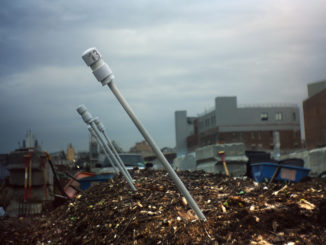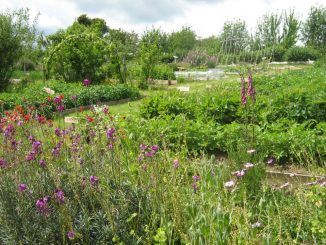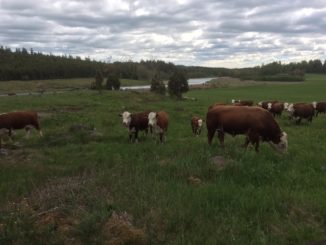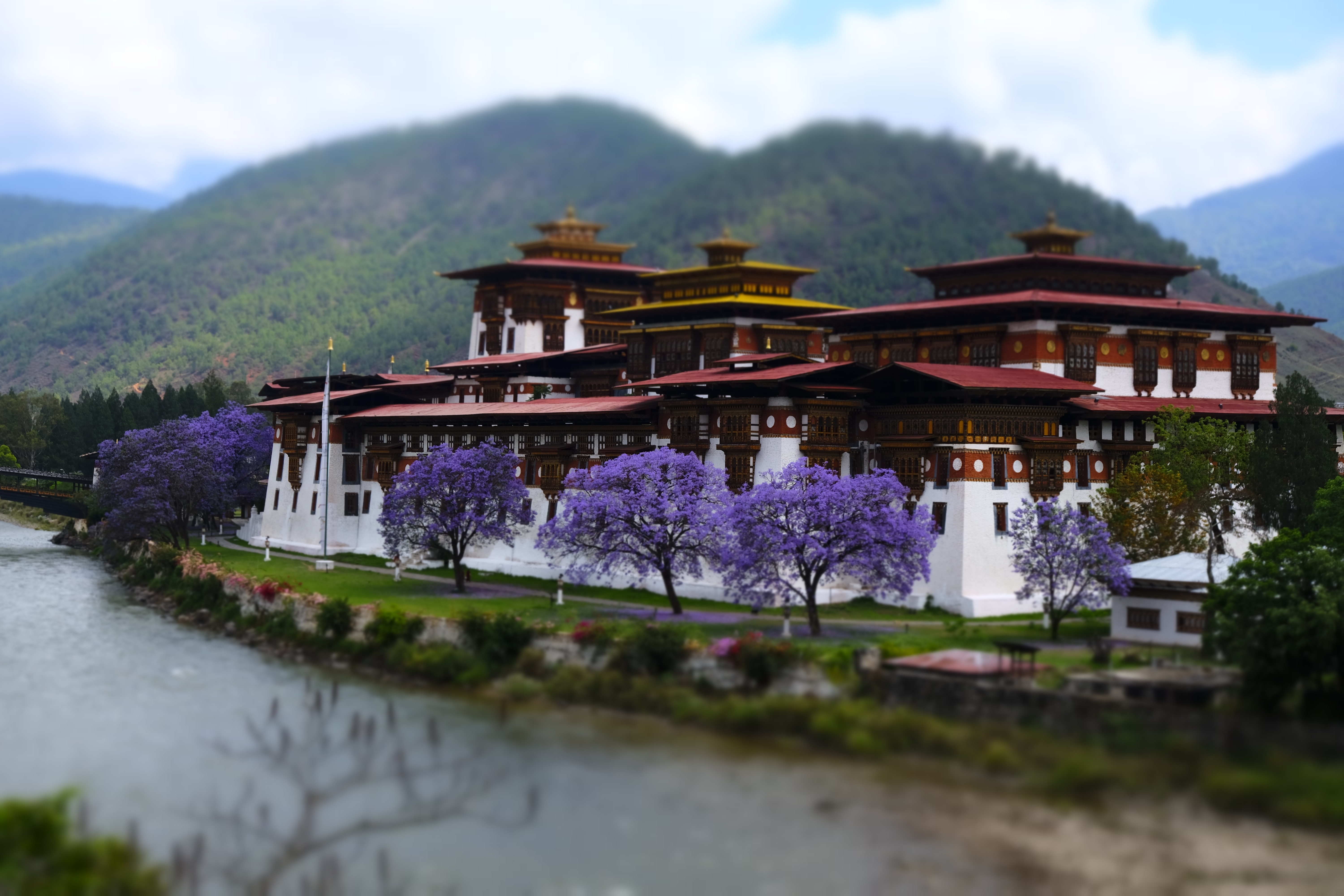
Interview with Aum Kesang Choedon, owner and manager of Chuniding Foods, Resort and Folk Heritage Restaurant in Thimphu
Kesang Choedon has created an innovative organic and heritage food enterprise near Thimphu, the Bhutanese capital. The enterprise includes processing of nearly 150 different organic food ingredients from a wide range of local products including dried fruit and vegetables, cereals, pulses, health drinks, herb teas and spices. These products are sold in an organic shop, and offered in a Folk Heritage Restaurant in the capital.
In her early career, Kesang Choedon was a police officer. She employs and trains 30 young women in processing and marketing of Bhutan’s local food treasures. She is eager to further expand her facilities, products and training to young Bhutanese people with the perspective to create and strengthen a new organic food movement that builds upon food traditions but also brings healthy and tasty food to Bhutanese people
Some people in Bhutan consider you as pioneer of a new food movement. Would you agree?
I am not sure whether I am a pioneer in the literal sense. The nature of my work led towards working directly with farmers and the need to supply our people with naturally-grown good food. If Bhutan is to be turning toward 100% organic, we need to be working together, farmers, processors and consumers. Some may believe that our food is already organic, because most of our farmers do not use any chemicals or fertilizers. But in fact there is only a very small organic market and there is a risk that non-organic methods come sneaking in. I consider my food business as an invitation to farmers to create their own organic market and as an invitation to consumers to value what we have in Bhutan: very nutritious and tasty local food.
You have started your food business ten years ago to preserve and develop Bhutanese food culture. Was it difficult to find farmers who would work with you?
Not at all. The problem was to get started with reasonable amounts to be bought up and resold. Sometimes I would have far too much, sometimes far too little. So I decided to dry food so that I would be able to balance what I received and what I could store – fruit, vegetables, pulses, cereals. That gave me time to find outlets. The shop helped and of course the restaurant.
There was no organic certification and control at that time. How could you trust that you got the quality you wanted?
I was relying on my own sense and the sense of friends who helped me finding farmers who were ready to cooperate. Bhutan is a big family you know. And in the villages we keep an eye on each other. With the help of the government’s extension service we had quickly built up a group organizing and checking the buying up. We have the Bhutanese organic certification now but I would like to say that certification may not be necessary for the local market, but would be important to base our exports upon”
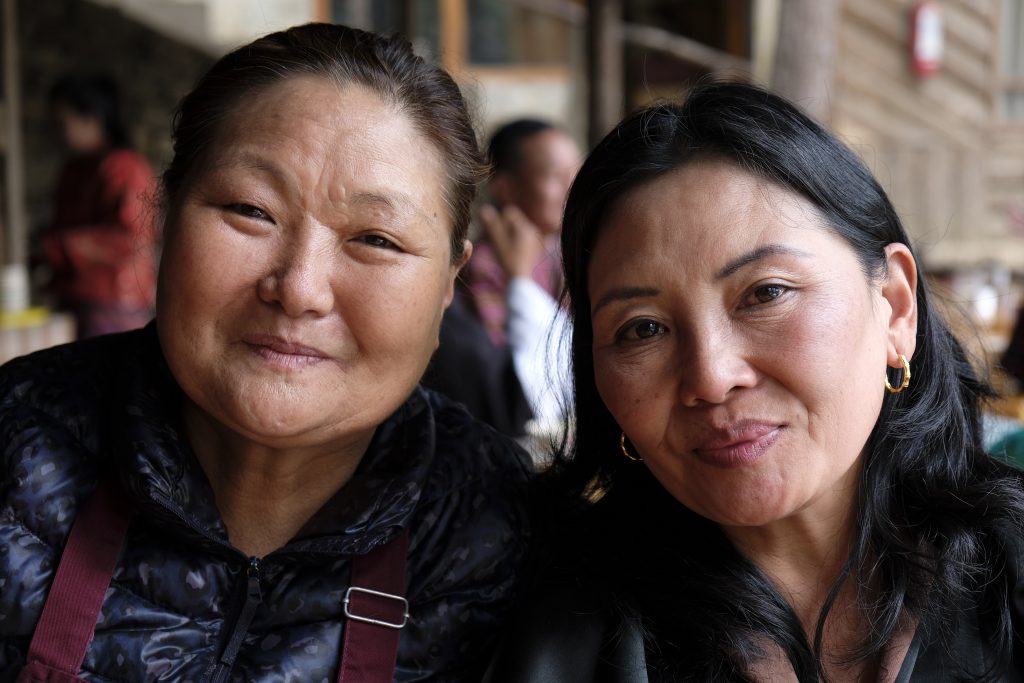
Before you started your food business you were a police officer. Why does a civil servant drop her career and become independent?
I was very lucky to be one of the first women who were offered a career when the government had decided to employ women in security services. It was an exciting time. I love investigations. At that time, it was still an adventure to be officer in the countryside, no roads, no cars, walking in the mountains, crossing rivers at night, sleeping in cowsheds on farms in the forest and so on. And it was already during that time that my sense for food has emerged from the food that we were offered at the farms. Then there was my grandmother’s food that was irresistibly good. Both, my grandmothers’ and our farmers’ food were the reasons that I dropped the job. It was not an easy decision at all. I think it was the day when I had read some reviews about the bad image Bhutanese food has. I was suddenly sure that my passion for our own Bhutanese food was stronger than remaining in the police services. I had no bad conscience that I would not properly serve my country any more, – you know we feel very responsible in Bhutan to serve our country – I was just sure my service for our country would be to preserve our food.
You also seem to have a passion to draw young people into a new food movement. You employ and train thirty young women. Is food still best taken care of by women?
I have only employed young women. Girls are in general more ambitious and innovative then men. Women often do not find jobs when it comes to plumbing, fixing electrical lines and cement works, as they are risky and require physical strength. I focus on young women who are jobless for some reason, including school drop-outs. And I want them to understand how important and fascinating work with food is. The girls in my staff stay with me between 3 to 10 years. They like the teamwork and I encourage them to take their own projects and initiatives in hand and develop them further. It is a bit how I always said to myself: if you feel like doing it, go for it, be your own master. My daughter and two nieces are managing the shop and the restaurant by the way. I believe women will do the job to bring our local food and the organic farming way into the center of Bhutanese culture.
You are building your business and your ambition for an organic food movement on food heritage and on food education. Do you believe that also a change of Bhutan’s farm and food policy could help to achieve the declared goal to become the first country in the world with 100% organic farming?
Policies can help, if the people carry them. We have the advantage that our king and our government want to go that way. But people seem to believe that we are already there, and that is not the case. Our subsistence farmers farm without chemicals but not necessarily organic. There are practices missing like crop rotation and good water management which make farming resilient on the long run. But also consumers are not aware how important it is that they chose local and seasonal food from Bhutan to support farmers in their effort to go organic. Finally it is an educational job. We have to teach food culture at schools and talk more about it. I was very lucky because I could tap into my grandmother’s vast cooking, preservation and food knowledge. She lived to 110 years old. I had time to “absorb” her treasure of recipes and I could build upon that to develop my enterprise. I am very keen to hand that on to my daughters and to the young people working with me. I believe our food culture is deeply linked also to our religion and our strong relation to nature. We are doing a religious offering called “du-na-gu”, the nine cereal grains. They stand for common wealth, for diversity and for generosity, in a sense for what we get from nature and what we share. I have offered these nine cereal grains in my shop, and I teach people how to cook them. This is how we build upon tradition and move towards a healthy and sustainable future.
Hannes Lorenzen is senior advisor in the Committee on Agriculture and Rural Development of the European Parliament. He has been the responsible staff person of the EP rapporteur during negotiations on the new EU Regulation for Organic Farming that will come into force in 2021. In May 2018, the Bhutanese Ministry for Agriculture and Rural Development invited him to join the general evaluation process of the countries’ strategy to convert the entire farming sector into organic farming practices and to advise of future national food policy strategies.



